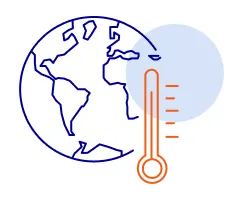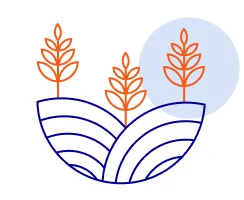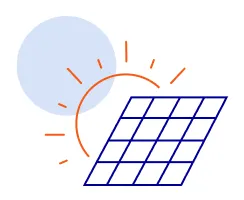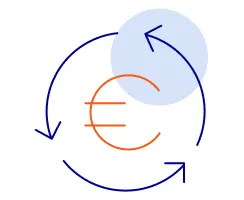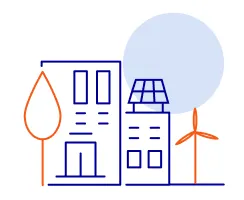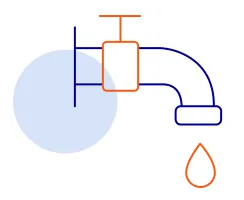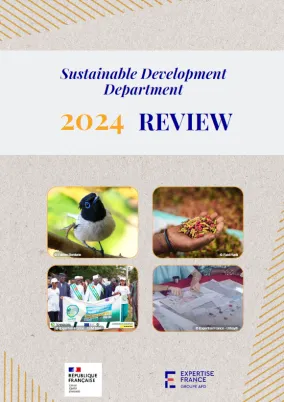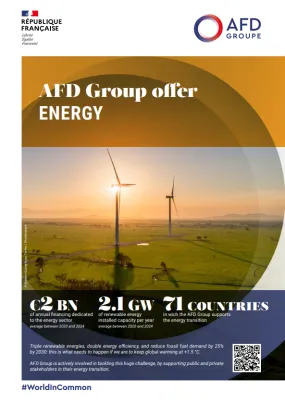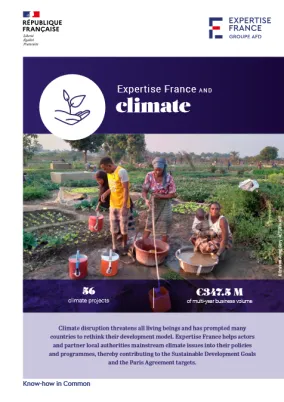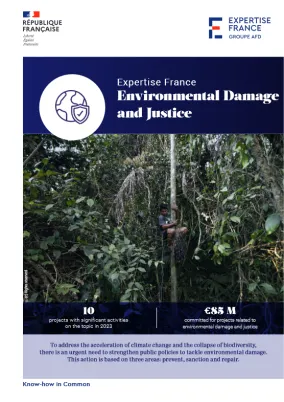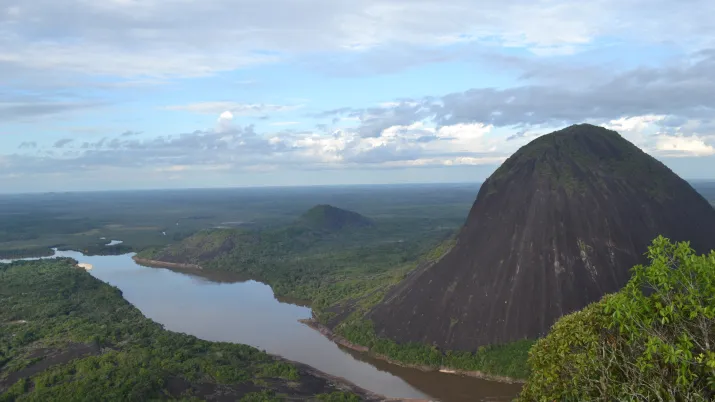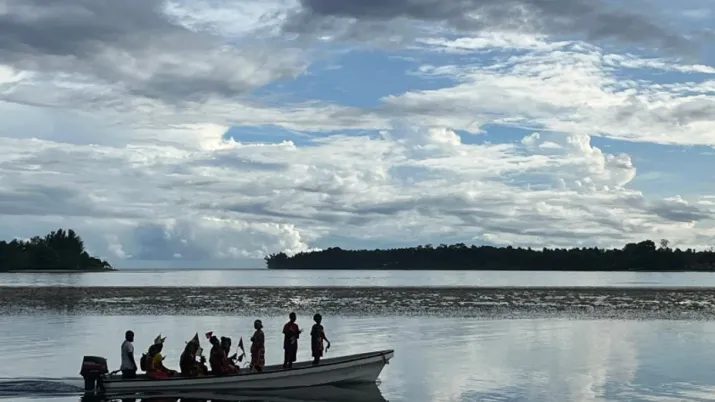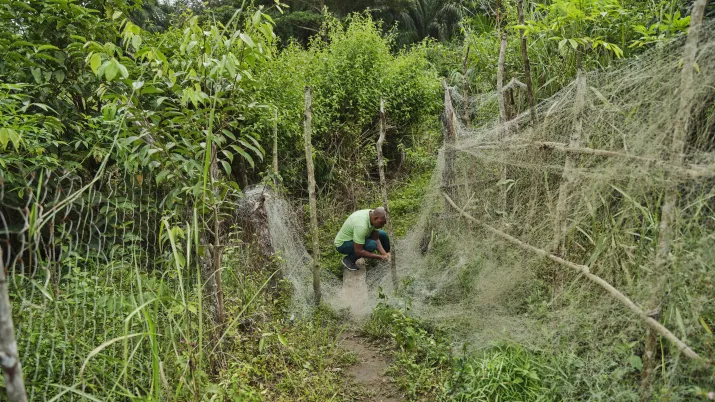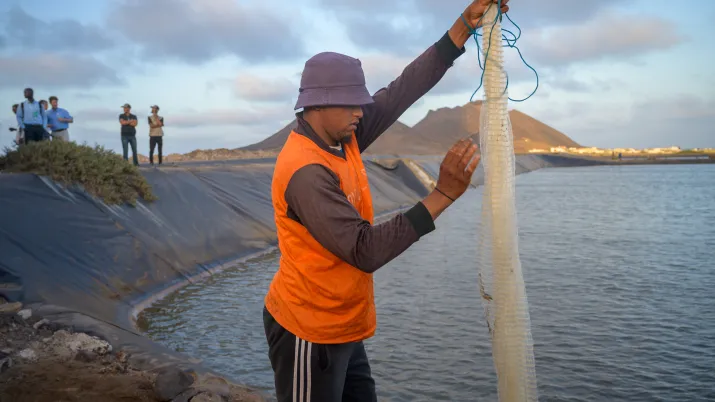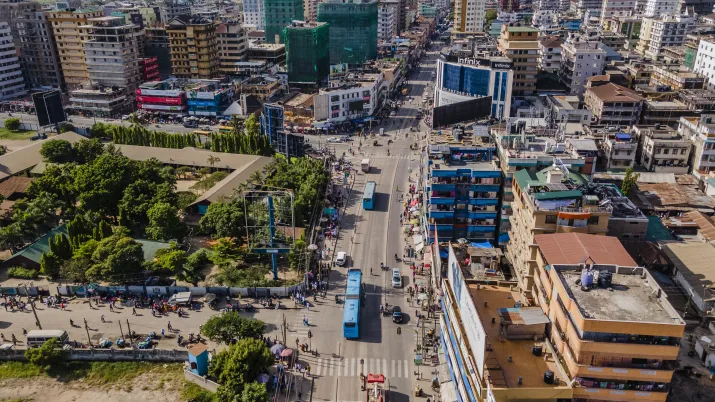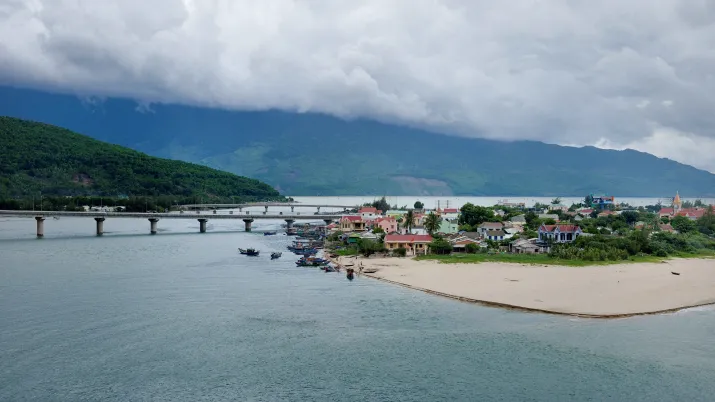Share the page
Our work in international sustainable development
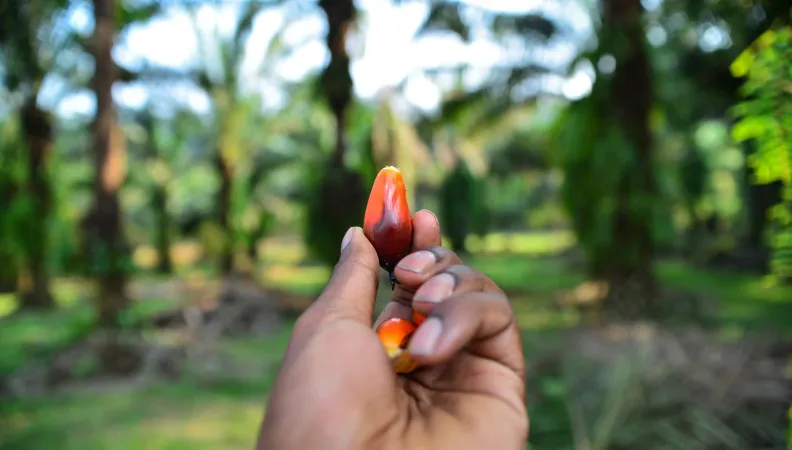
In a context of accelerating climate change and the growing vulnerability of populations in many parts of the world, it is more urgent than ever to promote international sustainable development at a global scale.
The numbers speak for themselves:
- 2024 was the hottest year on record
- 30% of the global population faces food insecurity
- 800 million people worldwide lack access to electricity
- Over 40% of amphibian species, nearly 33% of coral reefs, and more than a third of all marine mammals are endangered
- Only 7.2% of global resources currently go back into the circular economy
- Cities are responsible for two-thirds of CO2 emissions
- Nearly 4 billion people already live in areas affected by water shortages
In response to these alarming facts, our agency is committed to achieving the United Nations Sustainable Development Goals (SDGs), supporting our partner countries in building their capacity to address climate change and rapidly adopt best practices in international sustainable development.
Our strategic priorities
Our international cooperation projects cover climate, agriculture, energy, biodiversity, circular economy, sustainable cities, and water management.
1. Climate
Climate issues are a core priority in all our work. Our agency is committed to following a low-carbon, environmentally respectful approach. We lead projects in over 90 countries to support more resilient, inclusive, sustainable development capable of both adapting to and mitigating climate change.
Our key focuses include: building capacity and fostering stakeholder engagement with climate issues, mitigating the causes of climate change, reducing greenhouse gas emissions, and adapting to climate impacts.
2. Agriculture
As France’s development cooperation agency, we support agricultural and rural stakeholders across the globe in transitioning toward sustainable agricultural and food systems.
Our work focuses on five areas: Support institutions in developing and implementing agricultural and rural public policies; help stakeholders transition to economically, socially, and environmentally sustainable practices; boost competitiveness and job creation in agriculture; reinforce the governance roles of local and national institutions in the agricultural sector; and promote sustainable regional development and local governance of rural, coastal and marine areas.
3. Energy
With energy consumption rising and energy crises occurring more and more frequently around the world, our agency seeks new ways of organising the global energy sector. We facilitate open dialogue on viable alternatives with all relevant stakeholders.
Our key focus areas are: developing renewable energy, improving energy efficiency, ensuring universal access to energy, and promoting green investments.
4. Biodiversity
Given the acceleration of climate change and collapse of biodiversity, we work to strengthen public policies aimed at environmental protection. We strive to improve our understanding of threats to biodiversity and develop specific solutions tailored to local and regional contexts.
Our priorities include: international diplomacy and public policy support, protected areas, ecological restoration, sustainable natural resource management, mainstreaming of biodiversity, the co-benefits of the climate-biodiversity nexus, and environmental crimes and justice.
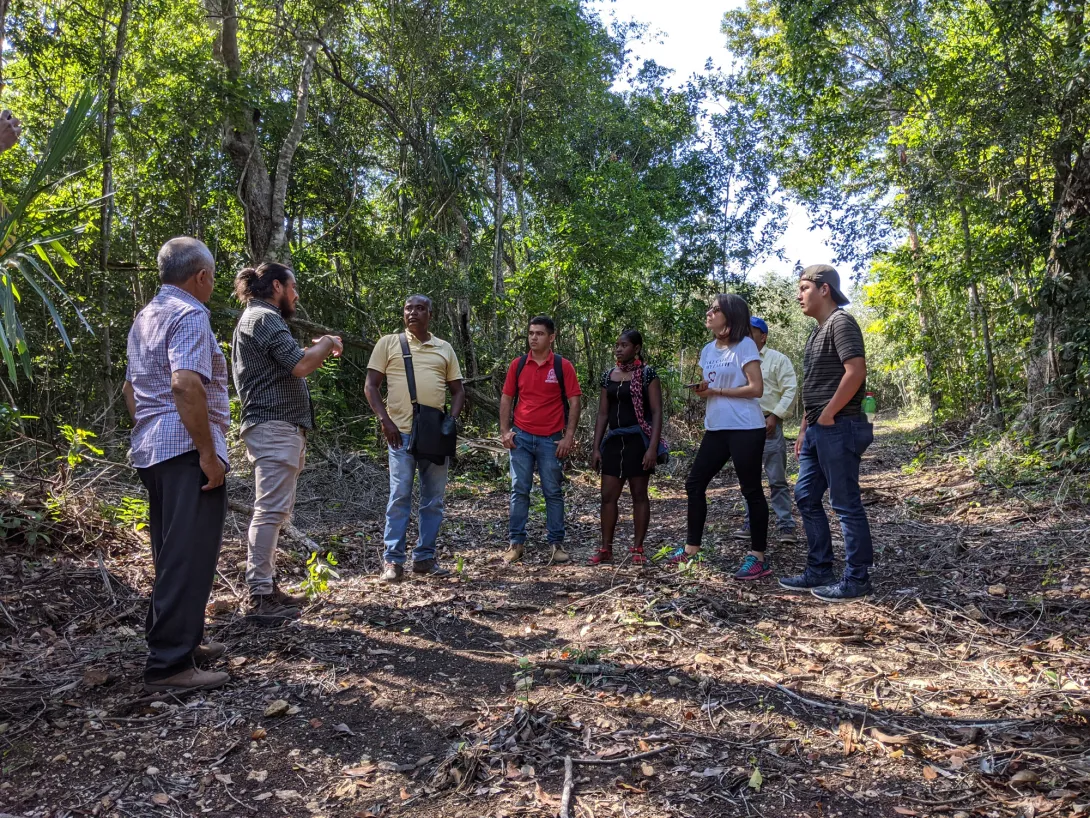
5. The circular economy
With current resource consumption rates exceeding the ability of ecosystems to regenerate, it is essential to promote the circular economy. Through our numerous international cooperation projects, we help partners implement sustainable public policies based on circular economy principles.
Our work focuses on two key aspects: combating land and marine pollution, and supporting the transition to an inclusive circular economy.
6. Sustainable cities
With over half the world’s population living in urban areas, fostering sustainable cities is vital for both present and future generations. We seek long-term, sustainable solutions to urban pollution, ecological impact, universal access to public services, and urban vulnerability to climate change.
Our approach focuses on three key aspects: supporting climate transitions and urban biodiversity, strengthening urban governance and participatory city-building, and reducing geographic, social and gender inequalities.
7. Water management
Water and access to water resources underpin the challenges facing the environment, food security and stability, which are exacerbated by climate change. We promote shared water governance and sustainable, inclusive water and sanitation services, as well as the prevention and/or reduction of water-related risks.
Our action focuses on two key areas: strengthening collaborative governance and institutional cooperation, and integrating environmental, social, and economic issues into water and sanitation services.
FAQ - For more about sustainable development
Sustainable development is a model aimed at meeting present needs without compromising the ability of future generations to meet theirs. Introduced in the Brundtland Report (UN, 1987), it reconciles three interrelated objectives:
- Economic: inclusive growth, job creation and sustainable innovation
- Social: fight against inequalities, access to rights, health, education and justice
- Environmental: protection of natural resources, fight against climate change and preservation of biodiversity
The 17 Sustainable Development Goals (SDGs) and their 169 targets comprise the United Nations 2030 Agenda. This agenda was adopted by the United Nations in 2015, and provides a solid framework and a global roadmap to achieve this vision by 2030.
International technical cooperation plays a pivotal role in helping partner states design and implement effective, inclusive, sustainable public policies towards achieving sustainable development.
As a public agency, Expertise France leverages French and European expertise to support green and climate transitions, inclusive economic growth, rule of law, gender equality, social resilience, and fundamental rights including human rights, labour rights, women’s rights and children’s rights.
This approach strengthens structural reforms, international partnerships (e.g. via knowledge sharing), public-private-civil society dialogue, the fight against poverty, and localisation of the SDGs. It is based on core principles such as partnership, adaptation to national contexts, and the sharing of best practices.
The work carried out by Expertise France – and all other international cooperation stakeholders – is governed by accountability. The impact of a project is measured via several indicators, which are specified at the beginning of the project. This results-based methodology makes it possible to track our effective contribution to the SDGs.
Ressources for download
Our projects
Regenerative nature-based tourism development
Ongoing
2025 - 2029
Funders : European Union, German State
SoNG – The Ocean and the Land for the People
Ongoing
2025 - 2030
Funders : Agence Française de Développement
Kopekoba
Ongoing
2025 - 2028
Funders : Agence Française de Développement, European Union, Central African Forest Initiative (CAFI)
Our news on international sustainable development
Supporting cities and the industrial sector in the face of the global climate challenge
Published on November 12, 2025
In Southeast Asia, providing long-term support to the circular economy, health and security
Published on October 6, 2025
Key figures in 2024
- 991 organisations underwent capacity building in sustainable development
- 20K individuals received support with the green transition, climate adaptation, and/or biodiversity conservation
- 21 countries received support in developing or implementing international environmental commitments
- 11.7 million hectares came under enhanced marine biodiversity management

